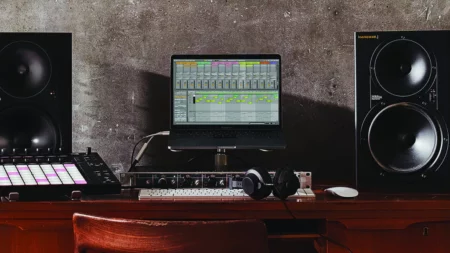Ableton Live 11.1 Beta With Apple Silicon Support, and you can try it now
Ableton announced Live 11.1, now available as a beta release, an update that adds support for Apple Silicon Macs and a variety of other improvements.
Ableton Live 11.1 adds native support for Apple’s M1 Silicon Macs, and you can try it right now. And if you have been waiting for it, its arrival is good news.
We are referring to native support for Apple’s M1 Silicon Macs, the first batch of which was released almost a year ago. This means that owners of M1 13-inch MacBook Pro will now be able to run Ableton Live without the need for Apple’s ‘translation’ software Rosetta, unleashing the full power of their computers in the process.
Whereas, owners of Windows machines and older Macs may be nonplussed by this news, Live 11.1 does also give them an updated Shifter device to play with. This adds a new mode for real-time monophonic pitch shifting, as well as delay, an envelope section, an LFO and glide functionality.
In addition, there are two new Max for Live utilities: Align Deay and MIDI Shaper. Align Delay enables users to compensate for lag when sending signals through their system, while MIDI Shaper generates modulation data that can bring more expression to MIDI performances.
Other tweaks include improvements to comping, updates to Clip handling and more.
Live 11.1 is available now in public beta. You can sign up to the beta program on the Ableton website, where you can also view the release notes.
Full details are available at the Ableton website.


